A Conversation on Art, Music, and Cultural Memory with Adewale Kolawole John
On October 16th, 2025, G.A.S. Lagos hosted a studio visit and review session that delved into Adewale Kolawole John’s practice, the works developed during his residency, and the ideas that shaped his time at the Foundation. The afternoon brought together a diverse group of art professionals, including writers, curators, designers, artists, and fellow residents for an engaging session of reflection and dialogue.
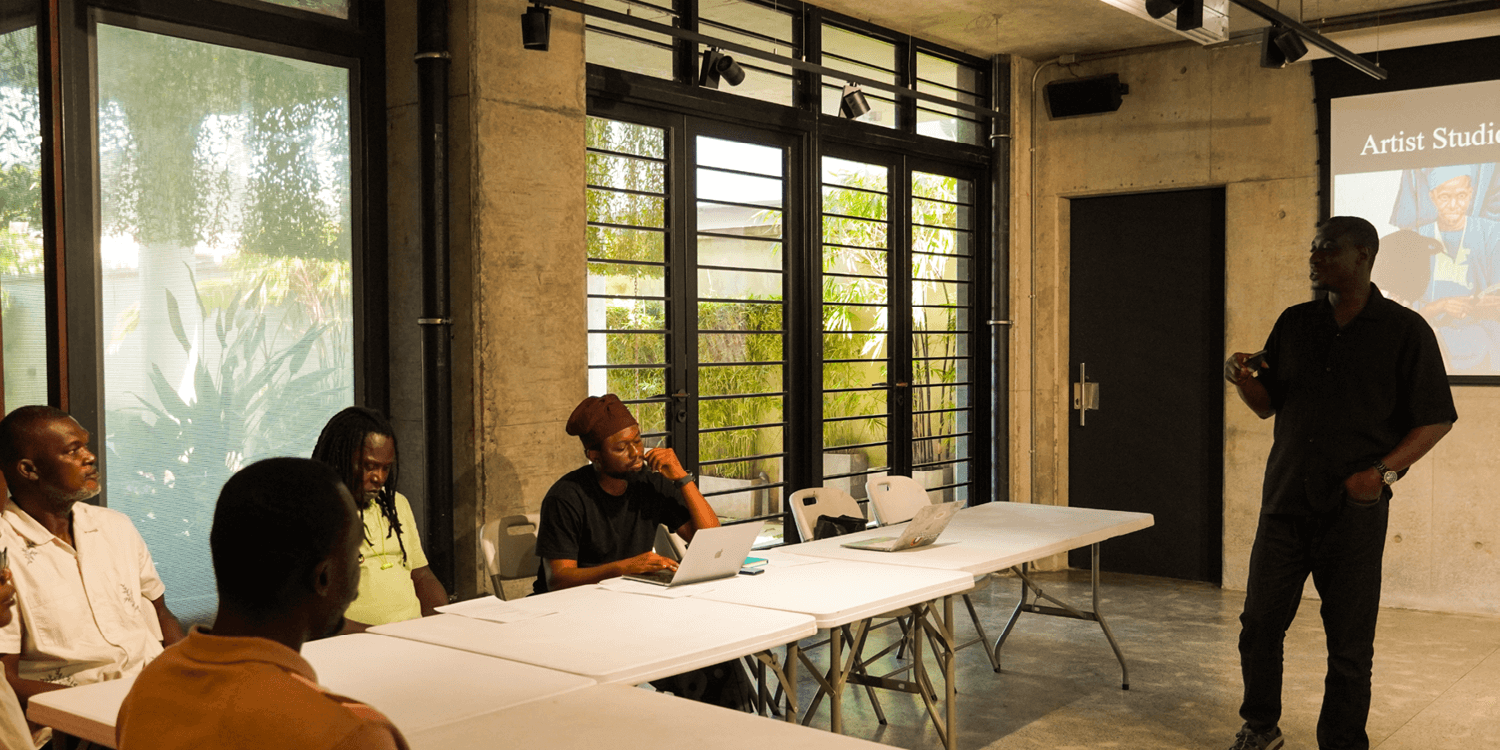
The event opened with a welcome address from Residency and Project Manager Adekunle Adeboye, who set the tone for the afternoon. Attendees introduced themselves and shared their backgrounds, creating an atmosphere of openness and collective engagement. Adewale then presented his artistic journey, tracing it from his early fascination with tracing images from books to his apprenticeship under David Olatoye, a Nigerian contemporary artist known for his hyper-stylised portraits rendered in acrylic and pen. Under Olatoye’s mentorship, Adewale began to refine his own visual language and discover his artistic focus.
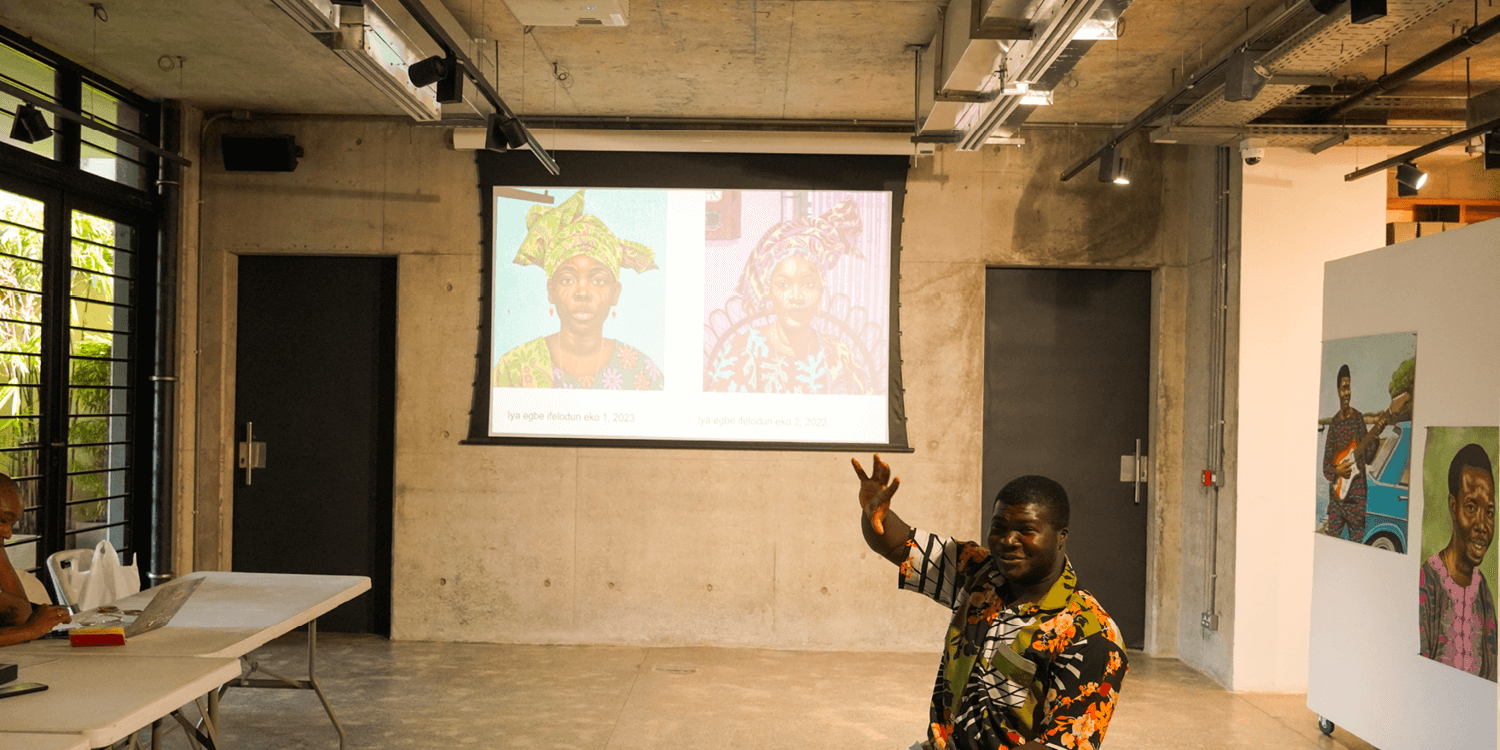
A lifelong lover of music particularly Yoruba sounds from before the 21st century Adewale later realised how deeply his visual practice could draw from these sonic traditions. This revelation opened up new pathways for exploring the intersections between art and Nigeria’s cultural history. Sharing works created between 2023 and 2025, Adewale introduced his ongoing exploration of Sakara, a Yoruba musical style performed with instruments such as the goje violin and sakara drum. Drawing inspiration from vintage album covers and archival photographs of musicians like Abibu Oluwa and Jimoh Ojindo, his paintings reimagine historical figures through a contemporary lens layering Yoruba attire, facial markings, and imagined environments that bridge past and present.

During his residency at G.A.S. Lagos, Adewale shifted his research from Sakara to Jùjú music, another genre deeply rooted in Yoruba traditions and originating in Lagos. Blending traditional percussion with Western instruments such as the electric guitar, keyboard, and drums, Jùjú offered him a new framework to examine how Yoruba musical expression evolved over time. This shift also led him to uncover the intertwined histories of Jùjú and Highlife across West Africa, two genres that merged African rhythmic structures with Western jazz melodies.
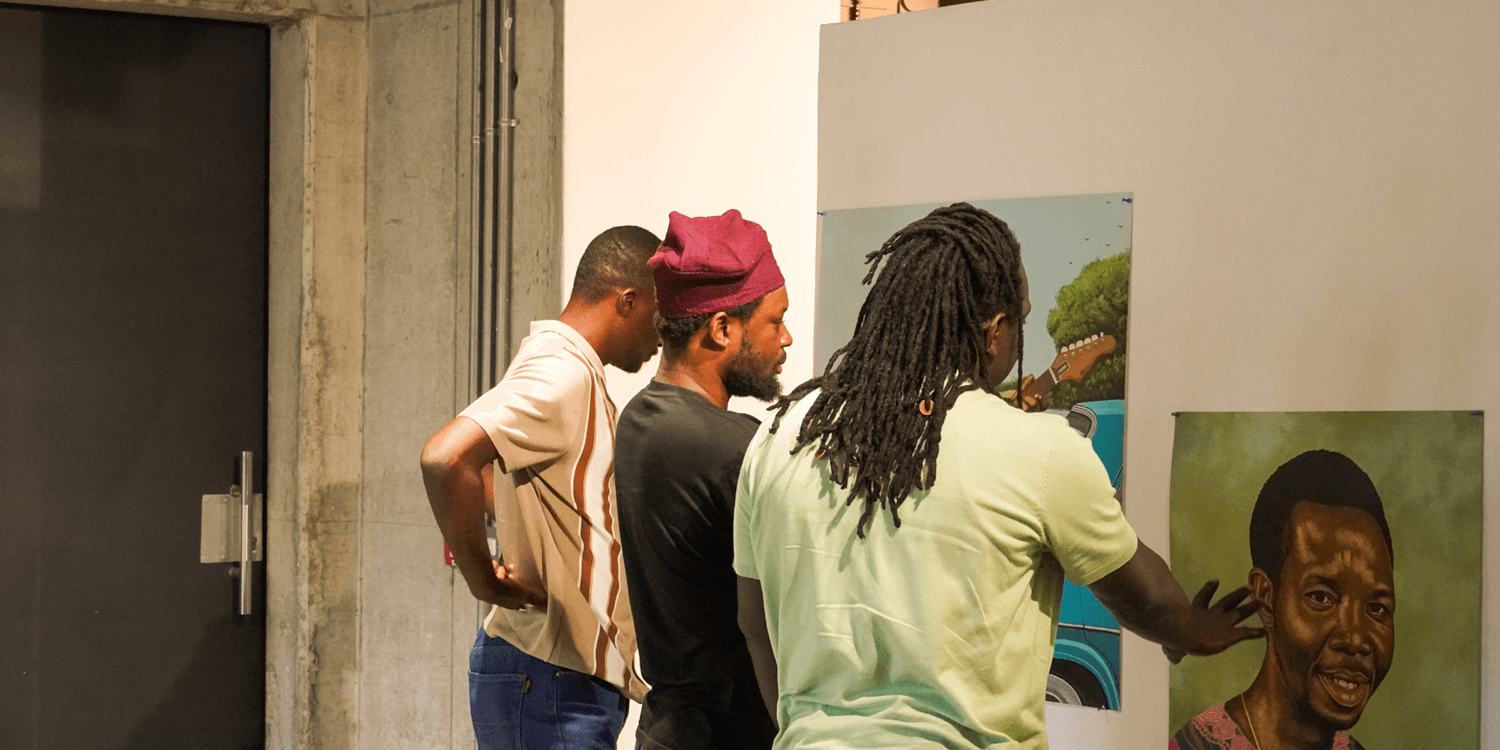
The presentation concluded with a display of works created during his residency, offering guests a first-hand encounter with his evolving material and conceptual approach. Attendees were then invited to share feedback and reflections, engaging deeply with the themes in Adewale’s work and their broader resonance in contemporary art. The session closed with collective reflections on artistic growth, underscoring the value of research, focus, and allowing ideas to unfold with patience and intention.

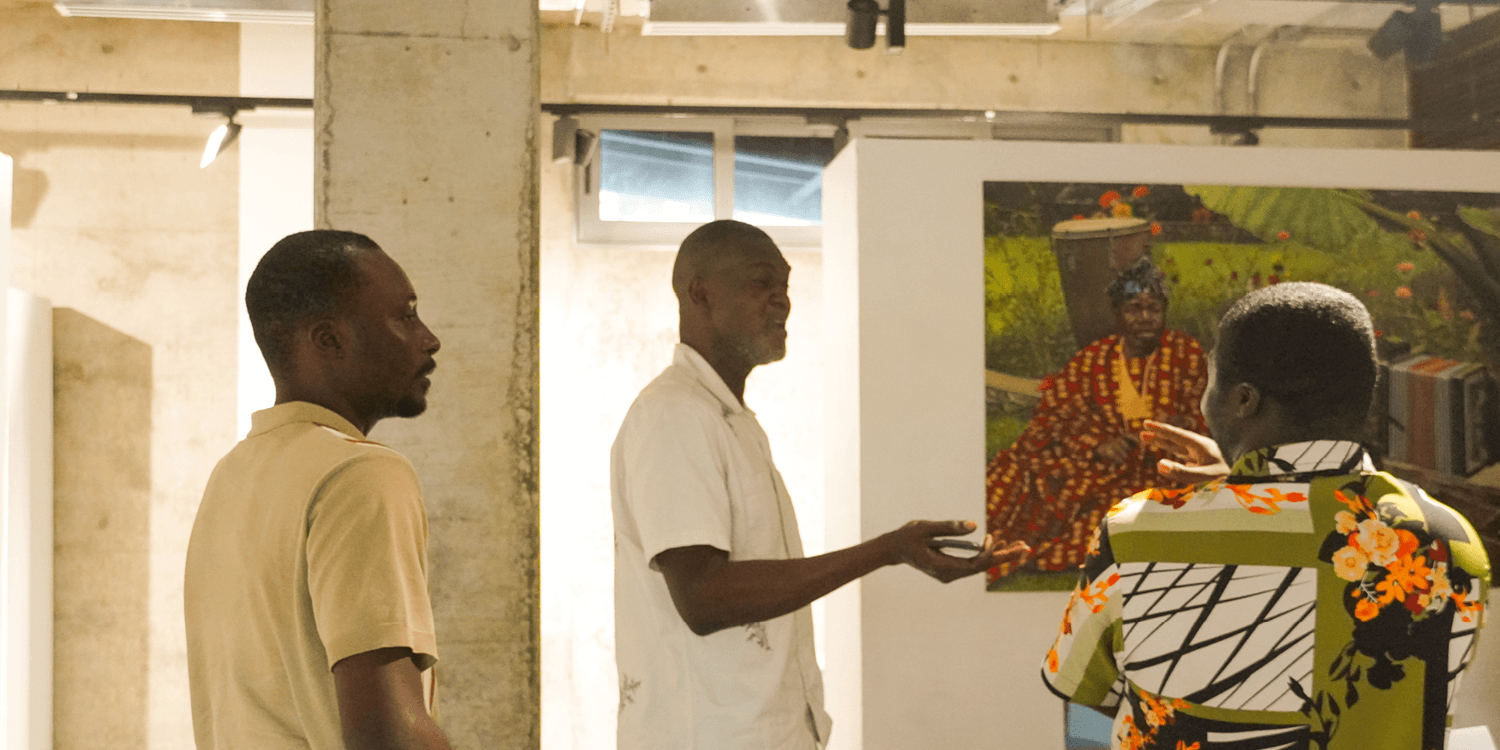
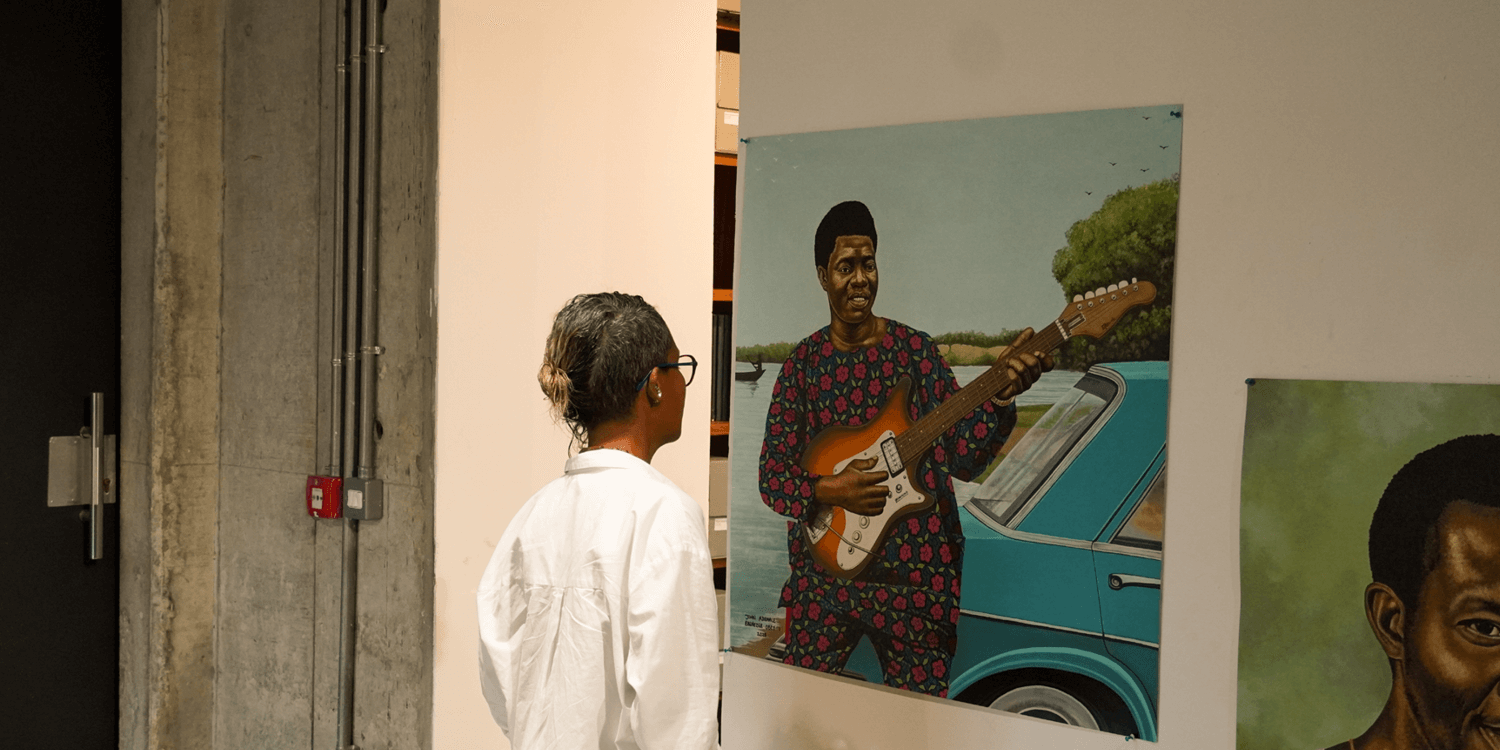
About the Artist
Adewale Kolawole John
Adewale Kolawole John is a visual artist born and raised in Ibadan, Nigeria. His practice is rooted in an exploration of Yoruba traditional music, with a particular focus on juju and its cultural legacies. Through painting, he creates rich, textured portraits that often depict Yoruba musicians in traditional clothing, capturing not only their likeness but also the spirit and atmosphere of the sounds they produce. Adewale’s work is deeply informed by archival research and personal encounters with music, record sleeves, and performance histories, which he translates into layered compositions on canvas. By drawing inspiration from Yoruba soundscapes, he situates his practice at the intersection of memory, heritage, and contemporary visual expression.
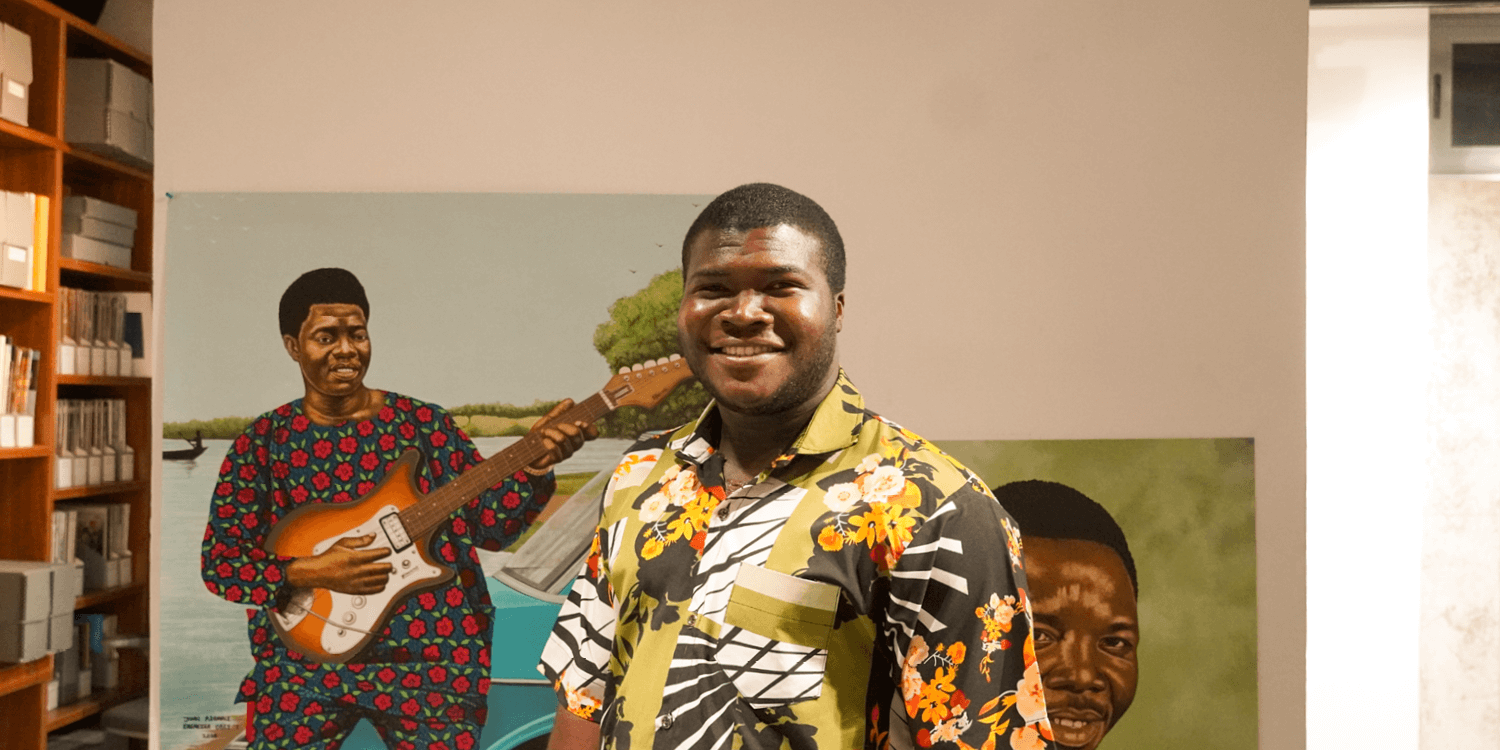
Adewale's residency is generously supported through funding from Adegbola Art Projects.
